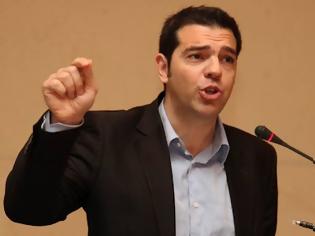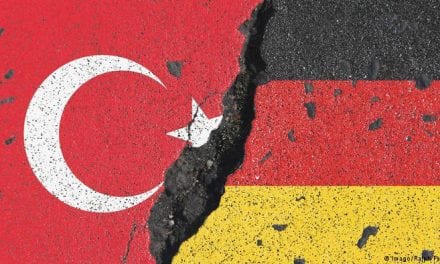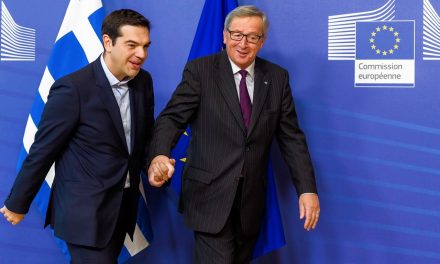WASHINGTON (MarketWatch) — Greece may get a new government in January led by a radical leftist, but it’s still a long shot.
The newest twist in the Greek epic shows how difficult it is for protest parties to come to power in a political system dominated by the establishment, even when mainstream parties have lost much of their legitimacy.
Greece’s conservative prime minister, Antonis Samaras, shocked markets this week by moving ahead a vote for the country’s president. The election in Parliament to choose a ceremonial head of state amounts to a virtual vote of confidence, and failure to get his candidate approved would result in the collapse of the Samaras government and trigger new elections in January.
That would position the leftist Syriza party headed by Alexis Tsipras to translate its consistent lead in opinion polls into a strong electoral showing that would enable him to form a new government.
While Greece has always been something of a special case, an electoral victory by Syriza would have repercussions for much bigger European countries where protest parties are also showing strong poll numbers.
This is notably the case in Spain, where a totally new party modeled on Syriza, Podemos, is polling support from one-fourth of the public and is vying with the center-left Socialist Party to be the strongest political movement in the country. But also in Italy, the radical Five-Star Movement of Beppe Grillo is maintaining its high poll ratings despite strife over his leadership style.
Tsipras has been at pains to tone down some of his inflammatory rhetoric, looking to soothe both international investors and Greek voters anxious about handing power to an untested movement. Clearly, this is an uphill battle for a party whose name is an acronym for Coalition of the Radical Left.
Similarly, the Podemos party led by Pablo Iglesias put out an economic manifesto last month that rolled back some its more defiant measures, speaking now of restructuring Spanish debt rather than an outright default and stricter regulation of utilities rather than nationalization.
In Italy, Grillo, a comedian by profession, seems to be coming to the realization that he is not cut out to lead a political party to power and could be ready to yield or share leadership with more pragmatic members of his movement.
It is, in short, very difficult to ride a wave of anti-politics into power when the only avenue to that power is politics.
But that is what these protest parties have to do if they want to move their countries away from an austerity imposed by the straitjacket of a common European currency EURUSD, -0.18% and the northern European countries who have exploited that currency for their own benefit.
The upstart parties have to make the distinction clear to voters between a political class corrupted by years in power and the legitimacy of the democratic political institutions themselves.
This was the message of a recent paper by two British academics for the U.K. think tank Policy Network. Their frame of reference was the somewhat different environment in Britain with the rise of the U.K. Independence Party, but their conclusions can apply across Europe.
“When asked to weigh up how our politics is managing austerity and the economic downturn, it is not fatalism about the capacity of government or politics that comes to the fore for most citizens,” University of Southampton experts Will Jennings and Gerry Stoker wrote about poll research they conducted. “What emerges is a sense of being failed by a political class that lacks the competence and strength of character to follow the right policy options and, above all, is regarded as too short-termist, media-obsessed and in cahoots with the rich and powerful to provide leadership in the public interest.”
When an establishment commentator like Hugo Dixon of Reuters, a veteran of the Economist and Financial Times Lex column, cites this kind of analysis, however, it is as a warning against the risk of “populists” and their pernicious policies.
In a recent comment, Dixon reels off a litany of “bad, superficial solutions” like debt default – the type of position the protest parties have backed off from – that in his view define the populist phenomenon.
And yet the solutions proposed by Dixon are suspiciously similar to those being tried by European Union officials: “fix the economy”; “structural reforms” in the individual countries; looser monetary policy; and more capital investment by the EU.
In citing the Policy Network paper, however — which is titled “Anti-politics: It’s not the economy, stupid; it’s you” — Dixon knows that it’s not just the economic malaise that has disaffected voters. But his answer to the lack of integrity in the political class somewhat simplistically is to have them show “zero tolerance toward corruption and cheating.”
It might be easier just to elect a new party that promises to do this rather than count again on politicians who have demonstrated they can’t.
There are a lot of “ifs” still in the way of a Prime Minister Tsipras in Greece. Samaras may indeed scrape together the 60% majority he needs in Parliament to elect his candidate president by the last of three ballots if fringe parties that fear their extinction in a new election join his cause.
Even if there is a snap election, Greek voters may not come through with the support for change indicated by the polls. The Greek vote will be a test of support for Europe’s protest parties.



















